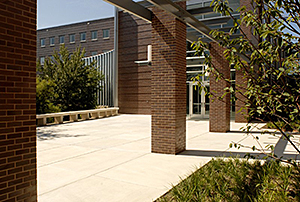 About Us
About Us
The Center for Biomolecular Therapeutics (CBT) was established as a partnership between the University of Maryland, Baltimore and the University of Maryland at College Park. Research facilities are located at the UMB campus and within the Institute for Bioscience and Biotechnology Research (IBBR), a three-building complex of research laboratories at the University of Maryland College Park, Shady Grove. The CBT is comprised of faculty from the University of Maryland, Baltimore (including the Schools of Medicine & Pharmacy), The University of Maryland College Park, The University of Maryland, Baltimore County, the IBBR, and several other Universities within the USM. The CBT director, David J. Weber, PhD, also serves as the Interim Co-Director of the IBBR.
Mission of the CBT
The CBT's mission is to facilitate the identification and development of diagnostics and therapeutics. To accomplish this goal, the CBT:
- Collaborates with research and clinical faculty across all USM campuses to identify important biological targets;
- Develops a parallel educational process to raise the level of expertise across USM concerning the discovery-to-commercialization “pipeline”, including regulatory and business expertise, and creation of an active visiting faculty scientist and postdoctoral fellow program;
- Interacts with the biotechnology and pharmaceutical industries in coordination with our Offices of Research and Development (ORD) to help maintain CBT’s focus on the most biomedically and commercially important targets, diagnostics, and therapeutics,
- Manages state-of-the-art scientific discipline-based programs necessary for the discovery and regulation of disease targets.
Highlights and Headlines
- 950 MHz magnet is the only 950 MHz spectrometer in a US academic facility
- Addition of Fluorine to NMR capabilities – 19F NMR technology was recently added to our 600 MHz NME spectrometer
- Addition of CryoEM to our structural study capabilities
